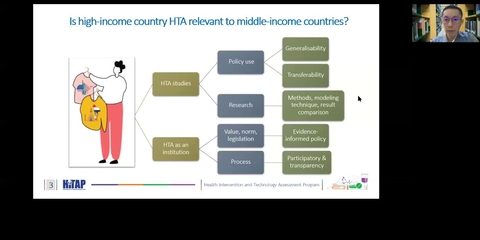
Is High Income Country Health Technology Assessment (HTA) relevant to Middle Income Countries?
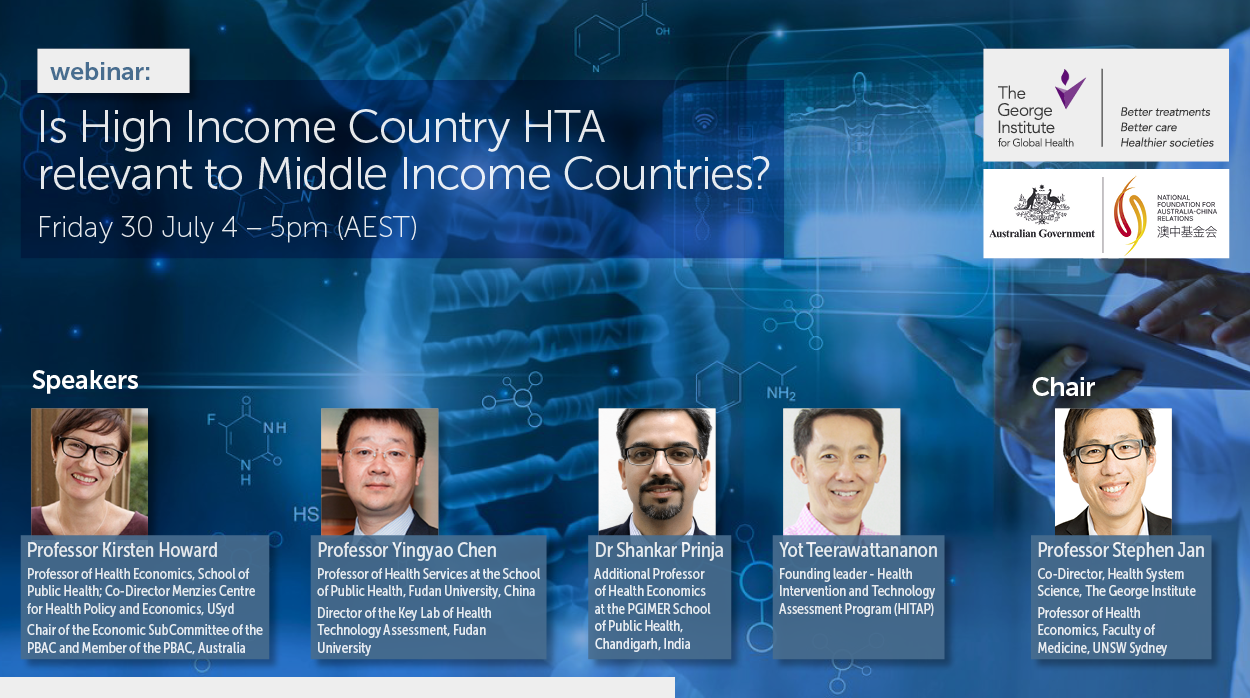
Resource allocation in health is universally challenging. Pursuing a strategy of evidence-based decision-making and using tools such as Health Technology Assessment (HTA) can help address issues relating to both affordability and equity when allocating resources. HTA is a mechanism or process to support evidence informed decision making in the health system, in a consistent, fair and transparent process occurring within a well-defined legal framework.
In this webinar, panellists will share perspectives on the current approach to HTA and processes for HTA structure, practices, application, capacity, gaps, and solutions in their respective jurisdictions and what lessons can be learned from the 30 years of Australian HTA experience. The webinar will be relevant to those researchers and policymakers with an interest in Health technology assessment and resource allocation in health.
This webinar is part of the COoperation between Australia and China in HTA (COACH) project which aims to promote China-Australia co-operation in HTA through knowledge exchange and research collaboration. This initiative is funded by The National Foundation for Australia-China Relations. This series aims to facilitate collaboration and learning and provide an opportunity for outreach and connection with the HTA community.
Speakers
Professor Stephen Jan
Stephen Jan is Head of the Health Economics and Process Evaluation Program and Co-Director, Health System Science at the George Institute for Global Health and Conjoint Professor at the University of New South Wales.
He is an Honorary Professor at the University of Sydney, a Director of the Sax Institute and an Associate at both the Menzies Centre for Health Policy and the Poche Centre for Indigenous Health. He is a current NHMRC Principal Research Fellow and has previously held posts at the London School of Hygiene and Tropical Medicine and the Centre for Health Economics Research and Evaluation (CHERE) in Sydney. Stephen has over 20 years of experience in health economics, has published over 200 scientific articles and authored two textbooks in health economics.
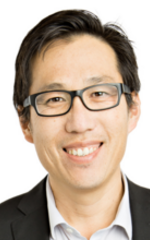
Professor Kirsten Howard
Kirsten Howard is Professor of Health Economics in the School of Public Health at the University of Sydney. Her research focuses on methodological and applied health economics approaches and how these can inform decision making at an individual and policy level. She has extensive experience applied and methodological health economics research, including economic evaluation, decision modelling, health technology assessment, quality of life assessment and measurement of patient and consumer preferences for healthcare. She is the co chair and member of Pharmaceutical Benefits Advisory Committee (PBAC) in Australia.

Professor Yingyao Chen
Yingyao Chen is Professor of Health Services at the School of Public Health, Fudan University (FUSPH), Director of the Key Lab of Health Technology Assessment (National Health Commission) at Fudan University, and Director of WHO Collaborating Center for Health Technology Assessment and Management. He is also the Associate Dean of the School of Public Health, responsible for international collaborations. His academic interests focus on health technology assessment, health policy, health economics, and hospital management. He serves as one of board of directors of Health Technology Assessment International (HTAi).
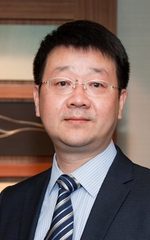
Dr Shankar Prinja
Shankar Prinja is an Additional Professor of Health Economics at the PGIMER School of Public Health, Chandigarh, India. His main research interests involve economic evaluation of health care interventions and programs, costing of health care services, and analysing impact of health financing policies in the context of universal health coverage. He is a member of Government of India’s taskforce on costing for health care services; member of the Technical Appraisal Committee for Health Technology Assessment Board and member of the Expert Group for costing of National Health Assurance Mission.
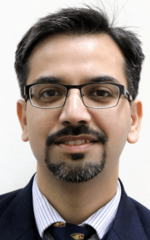
Yot Teerawattananon
Yot Teerawattananon is a founding leader of the Health Intervention and Technology Assessment Program (HITAP), which is a semi-autonomous research institute of Thailand’s Ministry of Public Health. He provides technical advice to many national and international agencies such as: the Gates Foundation, WHO, World Bank, Asian Development Bank and the Centre for Global Development. He is also one of the founders of HTAsiaLink, a regional networks comprising of governmental health technology assessment agencies in South Korea, Japan, China, Taiwan, Malaysia, Singapore, Philippines, Vietnam, Bhutan and Thailand.



